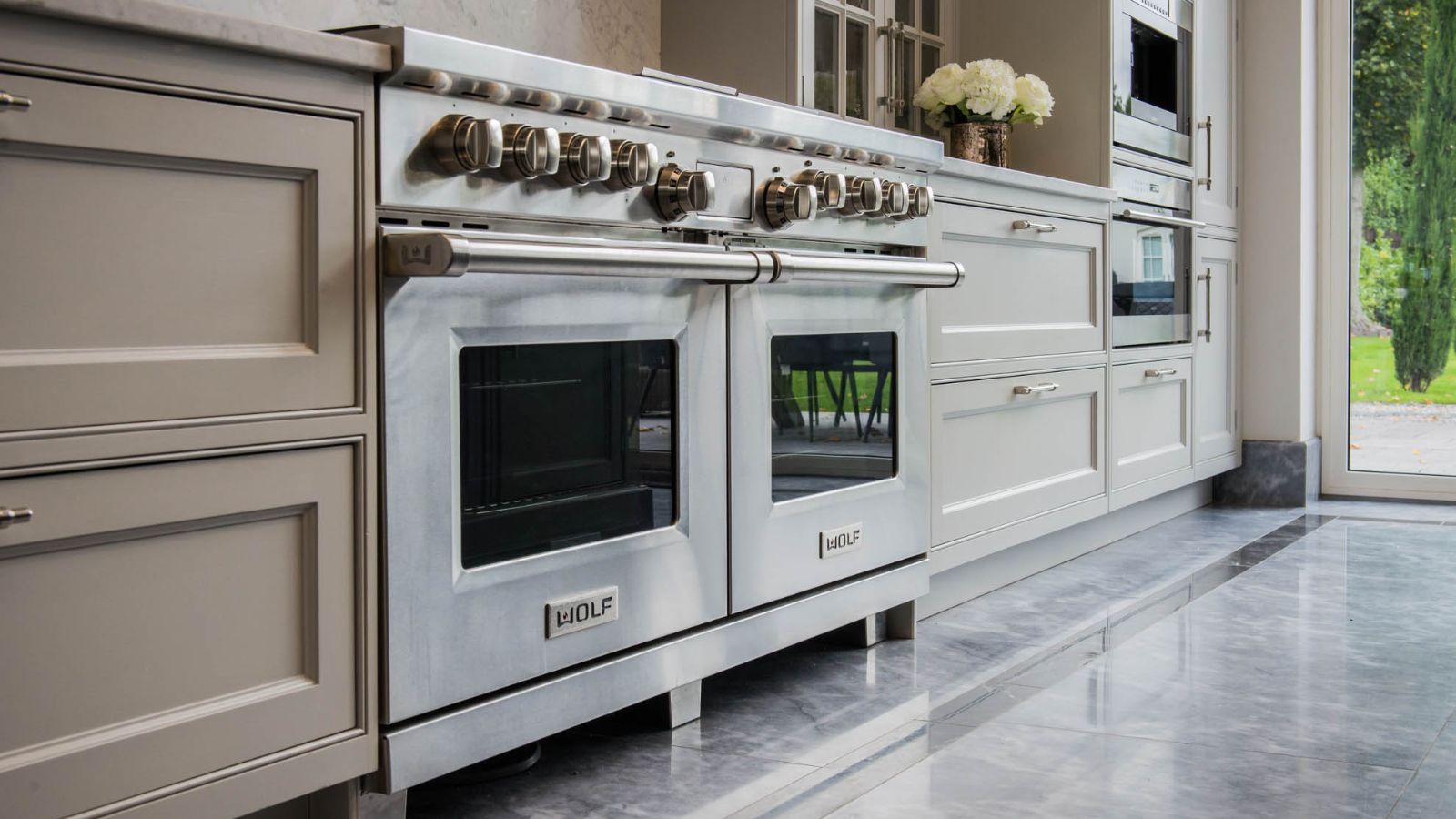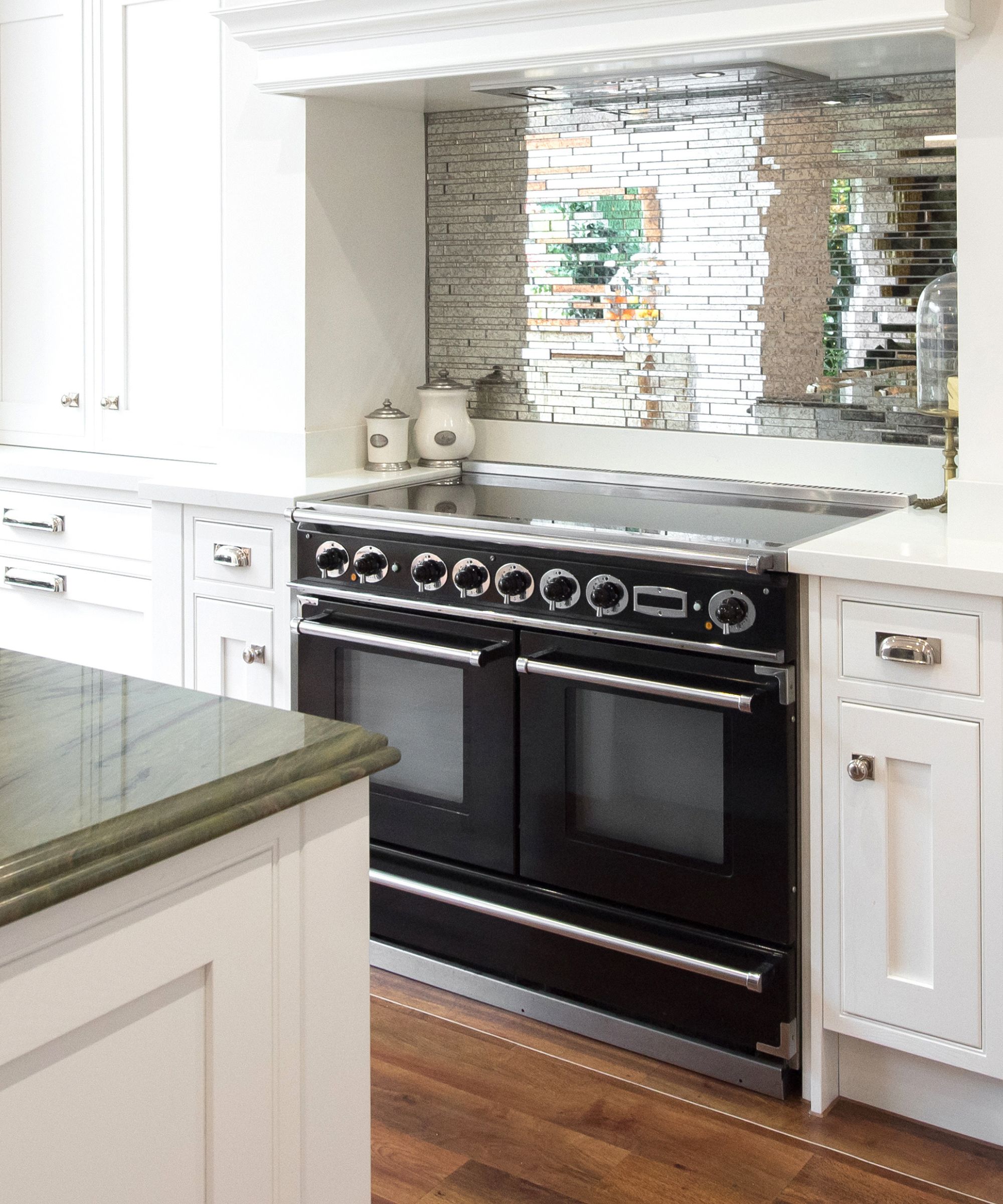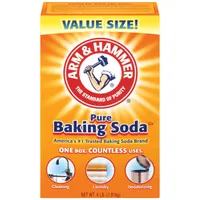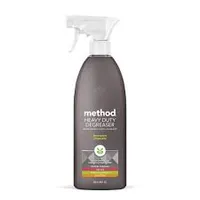What not to do with oven cleaner – 6 things you must avoid to prevent damaging your home
Protect your home and your health by avoiding these six oven cleaner mistakes


Design expertise in your inbox – from inspiring decorating ideas and beautiful celebrity homes to practical gardening advice and shopping round-ups.
You are now subscribed
Your newsletter sign-up was successful
Want to add more newsletters?

Twice a week
Homes&Gardens
The ultimate interior design resource from the world's leading experts - discover inspiring decorating ideas, color scheming know-how, garden inspiration and shopping expertise.

Once a week
In The Loop from Next In Design
Members of the Next in Design Circle will receive In the Loop, our weekly email filled with trade news, names to know and spotlight moments. Together we’re building a brighter design future.

Twice a week
Cucina
Whether you’re passionate about hosting exquisite dinners, experimenting with culinary trends, or perfecting your kitchen's design with timeless elegance and innovative functionality, this newsletter is here to inspire
Oven cleaner is one of the most potent cleaning products you can find in your cleaning cabinet and you must use it with caution.
Given that it is so powerful, there may be a temptation to try it elsewhere in your home to help combat stubborn cleaning tasks you would rather avoid, but cleaning professionals warn that, besides cleaning an oven, this chemical concoction is best left alone.
These are the six things you should not do with oven cleaners to protect both your home and your health.
What not to do with oven cleaner
It is best to avoid trying to make up your own cleaning tips when it comes to powerful cleaners such as oven cleaners, experts recommend – it is good to remember that not everything in your home has to have a dual purpose. Here is what to avoid to prevent accidents.

1. Never bring it onto oven doors
Despite being an oven cleaner, this product is only suitable for the inside of your oven – i.e. the metal box section and not the glass front, Lina Dasilva from Toronto Shine Cleaning reminds us.
‘The chemicals can etch the glass, leaving it foggy and damaged, possibly even causing it to shatter when subjected to heat,’ she warns. ‘When cleaning a glass oven door, stick to natural cleaners like cleaning with baking soda and either vinegar or water for a gentle abrasive cleaner to remove grease and grime.’
Arm & Hammer Pure Baking Soda, 2 lb | $9.50 at Walmart
From windows to rugs, tile grout to swimming pools, there are endless things you can clean with baking soda so it's useful to have at home.

Lina DaSilva is the founder of the award-winning Toronto Shine Cleaning. With over 5 years of industry experience, she specializes in residential cleaning and home organization. Her venture focuses on offering living wages and empowering homeowners to enjoy cleaner, more organized spaces.
2. Don’t use it on fans and broilers
Similarly, despite being inside your oven, oven cleaner should be kept away from fans and broilers, Lina DaSilva, cleaning expert, continues:
Design expertise in your inbox – from inspiring decorating ideas and beautiful celebrity homes to practical gardening advice and shopping round-ups.
‘These areas are often made of more sensitive materials that could be damaged by the harsh chemicals in oven cleaners,’ she explains.
To clean a broiler or fan, use a damp (not wet) lint-free cloth with some dish soap to gently wipe away grease, ensuring all the soap residue is removed before leaving it to dry.
3. Always make sure it's rinsed thoroughly
No matter how you clean your oven, whether you are cleaning an oven with lemon or using a chemical cleaner, it is essential to make sure any residue is removed before using your oven to cook with, reminds Millie Hurst, Solved section editor at Homes & Gardens.
‘When working with chemicals, follow the manufacturer's instructions for how to remove it. Once the cleaner has been cleared away, use warm water and plain soap to remove the residue before rinsing again with just water, and leaving it to dry fully before cooking.
'If there is a smell when you use your oven for the first time after cleaning with chemicals, turn the oven up high to burn it off for 20 minutes or so, before cooking anything inside it. You can also add a baking dish of water to create steam and help remove odors, but do so carefully.’

Millie Hurst is Section Editor at Homes & Gardens, overseeing the Solved section, which provides readers with practical advice for their homes. Millie has written about and tried out countless cleaning and DIY hacks in the six years since she became a journalist, and has worked in both London and New York.
4. Don't use it to unclog a sink
Oven cleaner is prized for its ability to eat away at grease, but it should never be used to clean or unclog a sink, Joshua Bartlett, home improvement expert and founder of I’ll Just Do It Myself, warns.
’Contrary to popular belief, oven cleaner is not safe for unclogging greasy kitchen drains,’ he shares. ‘It can damage plumbing and is harmful to the environment – opt for a dedicated sink unblocker such as Drano from Walmart instead,’ he urges.
5. Don’t forget to ventilate the space
Just because a cleaning product is designed to be used indoors doesn't mean you should use it in a fully enclosed space, cleaning expert Lina DaSilva comments. Oven cleaners are particularly incredibly potent, she explains, and they can be damaging to your airways when used without the proper ventilation.
Always keep the area well-ventilated by opening doors and windows, and running an extractor fan if you have one. It may also help to wear a mask while working – especially if you are leaning into your oven to reach the far back corners, Lina suggests.
6. Never use it outside of an oven
The hint should be in the name, but oven cleaner should never be used outside of an oven to clean a kitchen, says Joshua Bartlett, home improvement expert:
‘Avoid countertops, particularly laminated or natural countertops,’ he begins. ‘Oven cleaner can eat away at laminates, causing discoloration or changes to the texture and pattern. Because natural countertops are often quite porous, using oven cleaners can soak into the material and cause a cross-contamination issue.
‘Similarly, don’t use it to clean kitchen appliances. It might be tempting to use a heavy-duty cleaner like oven cleaner on other kitchen appliances, but it can damage the finish of refrigerators, microwaves, and dishwashers.
‘Finally, whether you have tile, hardwood, or linoleum, oven cleaner can cause discoloration and damage to the flooring surface, so try to avoid spilling any.’
Method Lemongrass Kitchen Degreaser | $4.79 at Target
Methods kitchen degreaser works hard to cut through grime and leave a fresh scent behind.
FAQs
What should you not do when cleaning an oven?
When cleaning an oven, it is important to avoid using harsh abrasives that can damage the protective interior coating on the oven itself. Doing so could possibly reduce the lifespan of your oven or lead to it releasing toxins when heating up.
Always make sure you use a dedicated oven cleaner – or a steam cleaner for a better non-toxic alternative – and follow the instructions to the letter.
Is it safe to cook food after using an oven cleaner?
After cleaning your oven with a chemical oven cleaner, it is best to leave it open for a few hours after thoroughly rinsing the cleaner away to allow your oven to air out. You might also want to heat your oven to around 390f without any food in it to dry the oven out before cooking food – make sure the oven is completely cleaned out of cleaner first.
Oven cleaner is certainly not a product you’ll want to be messing around with, and knowing how often you should clean your oven can help you avoid overusing the chemicals and damaging either your oven or your health. Use it sparingly and follow the accompanying instructions for the best results.

Chiana is Homes & Gardens’ kitchen appliances editor. With a lifelong passion for cooking and baking, she grew up experimenting in the kitchen every weekend with her baking-extraordinaire Mom, and has developed a great understanding of how tools and appliances can make or break your ideal relaxing kitchen routine.

